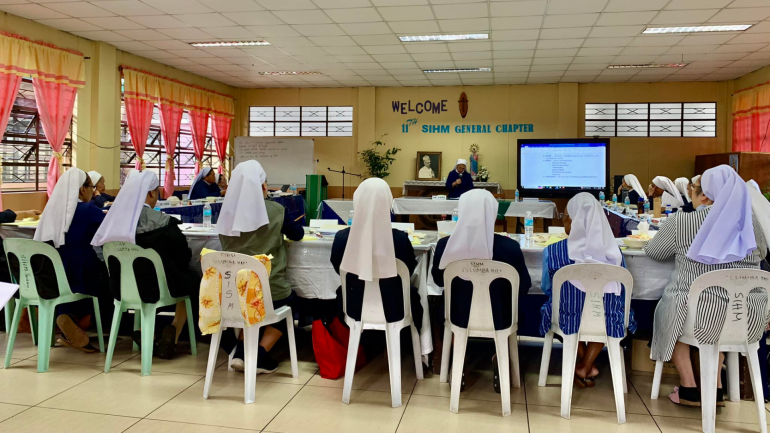Synodal conversations: The 5-D Process in Religious Life

“Behold, I am making all things new” (Rev 21:5). In a synodal Church, we are constantly invited to seek new perspectives, approaches, and methodologies for our mission.
Reflecting on this, I’ve observed an innovative process that was employed during our XXVI General Chapter in Rome in 2021.
In this article, I will share the key points of this method, enhanced with some additional insights. The revised methodology is now structured into five interconnected phases, each starting with the letter "D" for easy recall: Discover, Dream, Design, Deliberate, and Designate.
1. Discover
The first phase, "Discover," marks the beginning of the chapter by focusing on evaluation and reflection. This stage invites the capitulars to reflect on the past, guided by reports from the Superior General and General Econome, which assess the life and economic condition of the institute or province over the previous term.
The goal is for members to discern the seeds of life (blessings) and the weeds (challenges) that have grown alongside them.
This reflective process, reminiscent of the “conversations on the road” from the Emmaus story or “conversations in the Spirit” inspired by the recent Synod on Synodality, emphasizes identifying possibilities rather than merely diagnosing problems.
The focus remains on nurturing seeds of hope for the future rather than dwelling on past shortcomings.
2. Dream
Throughout salvation history, God has used dreams as a medium to reveal His plans. In his Apostolic Letter Patris Corde (2020), Pope Francis highlights how dreams have served as a means through which God manifests His will, especially in the life of St. Joseph.
In this phase, capitulars discern God’s vision for the congregation or province by envisioning what the future could look like.
These dreams cover key areas of religious life, such as vocation promotion, formation, spirituality, community life, mission, economy, and governance.
The insights gained during the discovery phase help shape and define these dreams.
3. Design
The "Design" phase is where the dreams begin to take concrete form. This stage focuses on outlining actionable steps that will bring these dreams to life.
Much like designing a house, this phase involves determining the specific components—like the columns, floors, and rooms—that make up the whole.
In this context, the designs are the commitments and strategies needed to move the congregation from its current reality to where it aspires to be in the next chapter.
These designs should be SMART (Specific, Measurable, Attainable, Result-oriented, and Time-bound) to ensure they are practical and achievable.
4. Deliberate
While deliberation permeates every phase of this process, it takes center stage here. Deliberation focuses on discussing significant issues that affect the entire congregation or province, such as revising constitutions or addressing other matters of importance.
In some institutes, this phase is referred to as the “chapter of affairs,” distinct from the “chapter of elections.” For topics not initially included in the agenda, a committee may be formed to evaluate their relevance and facilitate collective discernment.
This phase emphasizes equal participation and open dialogue, ensuring that every member has the opportunity to voice their thoughts.
The chapter, as the highest collegial authority in an institute or province, makes decisions that carry weight and credibility through this inclusive process.
5. Designate
The final phase, "Designate," involves the election of new leaders who will guide the congregation or province in realizing its collective dreams.
Before the election, capitulars may engage in a “public consultation” to identify the qualities needed in future leaders and propose a shortlist of potential candidates who can work effectively as a team.
This process aids communal discernment and minimizes the risks of imprudent solicitation of votes (cf. can. 626).
Synodality in Religious Life
To embrace synodality in religious life is to commit to “walking together” in discerning what the Lord asks of us at this moment.
As Pope Francis reminds us, “A synodal congregation is a congregation of listening: a family in which we all listen to one another because we all have something to learn, and we all want to listen together to the Holy Spirit.”
While traditional hierarchical approaches have long shaped chapter celebrations, this 5-D method offers a fresh perspective, demonstrating the transformative potential of alternative approaches to leadership and discernment in religious communities.
Radio Veritas Asia (RVA), a media platform of the Catholic Church, aims to share Christ. RVA started in 1969 as a continental Catholic radio station to serve Asian countries in their respective local language, thus earning the tag “the Voice of Asian Christianity.” Responding to the emerging context, RVA embraced media platforms to connect with the global Asian audience via its 21 language websites and various social media platforms.














